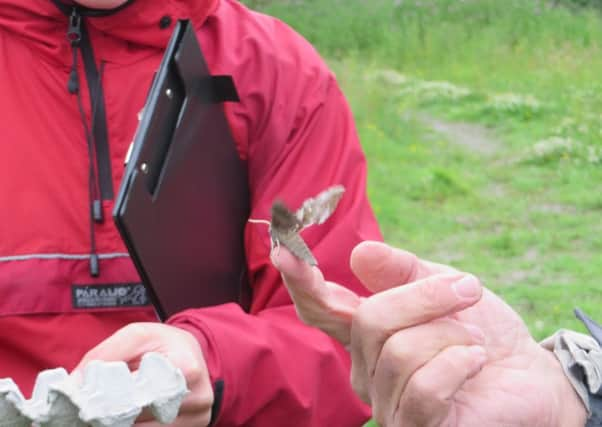Help to make the '˜moth' of nature


Would you like learn more about the moths of the Forth estuary area and practise your identification skills and contribute to a national species recording scheme this summer?
The Inner Forth Landscape Initiative (IFLI) has teamed up with local moth enthusiast Professor David Bryant to run a series of seven fun, free workshops called Mothing Around the Forth which will give people of all ages a chance to discover more about these declining species, have a go at moth trapping and generate wildlife records for Butterfly Conservation’s UK wide survey of moth numbers and distribution.
Advertisement
Hide AdAdvertisement
Hide AdThe first workshop, at RSPB Skinflats Nature Reserve, Grangemouth, will introduce the range of moths found at different times of year and give you a chance to get started on moth ID, using identification guides as we open moth traps left out overnight at the reserve near Falkirk.
You will be able to build and take home your very own simple moth trap with all materials provided free of charge thanks to IFLI’s funding from the National Lottery through the Heritage Lottery Fund.
As part of this project we hope to find some less-recorded moths and all records generated will feed into Butterfly Conservation’s upcoming Moth Atlas – a valuable contribution to nature conservation and understanding.
As Professor Bryant himself said: “Moths fly at night so are unknown to most of us. Nevertheless, many moths are brightly coloured and appealing once seen closely, and at the same time they and their ‘duller’ cousins play a vital role in the natural world.
Advertisement
Hide AdAdvertisement
Hide Ad“Not least, a very high proportion of our summer-visiting birds, from warblers to cuckoos travel from Africa each year to feast on our moth caterpillars. For this and other reasons, it is important to know what moths are present and whether they are thriving.
“Sadly, a recent report showed most of our moths are in decline and this is part of the explanation for parallel declines in farmland and woodland birds.
“By recording the variety of species and number of moths found in different areas you will be helping build a better picture of moths presence and/absence throughout the landscape.”
These workshops are part of IFLI’s Forth Nature Counts project, which aims to generate wildlife records and give people the confidence and skills to record nature throughout the Inner Forth.
Each Mothing around the Forth session is free.
Call (01324) 831568, or email [email protected] for more information and to book your place.